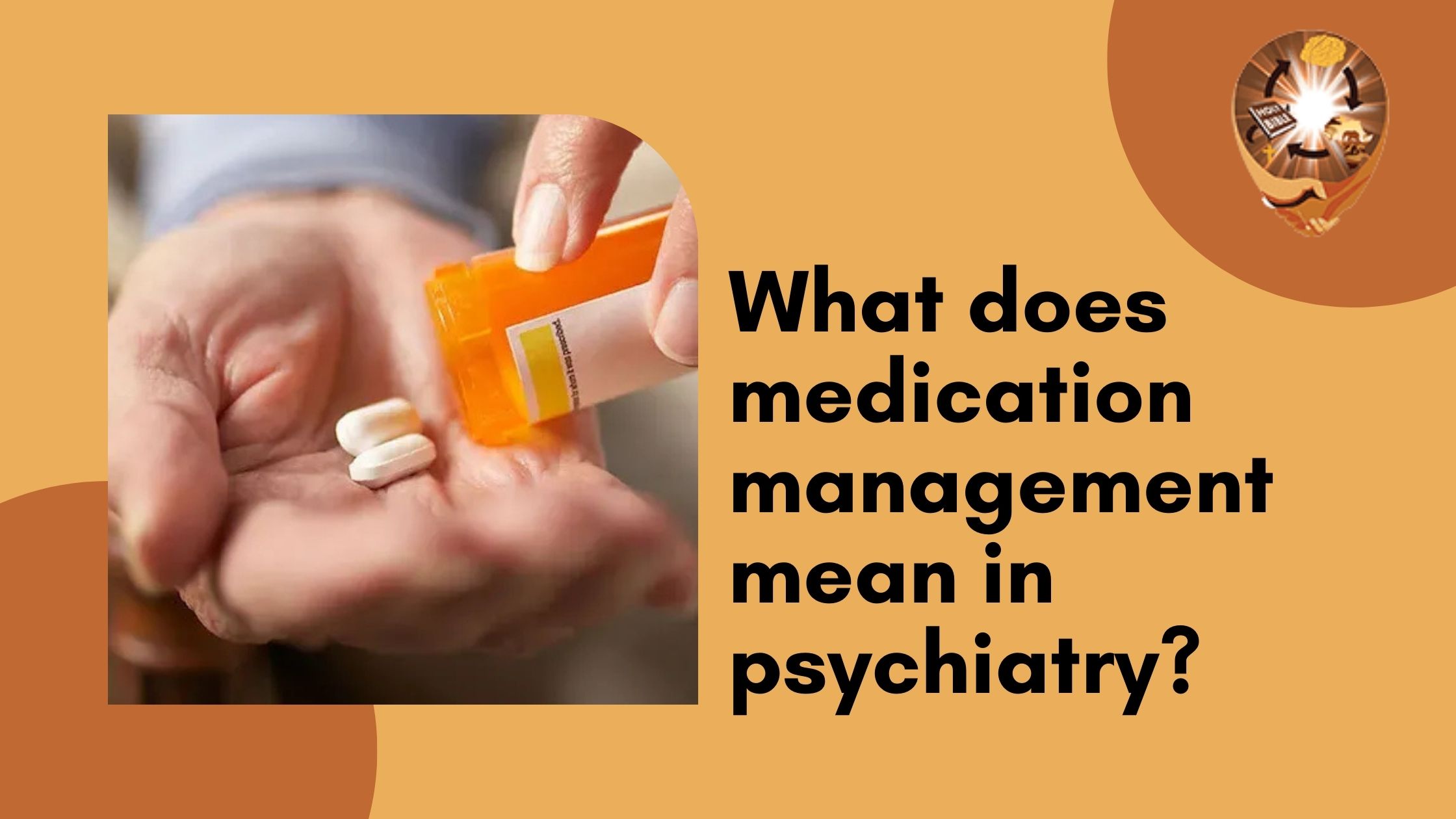Working with a psychiatrist or psychiatric nurse practitioner to ensure that your psychiatric drugs are safe and effective is known as mental medication management. This could entail adding additional medications, altering dosages, or transferring prescriptions. A number of drugs are available for use in mental health and medication management. You will get the finest care if you choose a practitioner knowledgeable about mental health and medications.
What is Medication Management?
Providing vital care when managing any health conditions and their effects on an individual includes managing medication. Since not everyone is affected by pharmaceuticals in the same way, it’s critical to watch for side effects and drug interactions to make sure people are getting the right therapy.
What is Medication in Psychiatry?
Psychiatric medications play a crucial role in managing mental health disorders such as depression, anxiety, bipolar disorder, schizophrenia, and more. While therapy and lifestyle changes are vital components of mental health treatment, medications can address biological imbalances in the brain that contribute to psychiatric conditions. The primary goal is to help patients achieve symptom relief and functional stability, enabling them to lead fulfilling lives.
Who Must Consider Psychiatric Medication Management?
You should think about managing your mental health medications if you are currently using them or are thinking about beginning to take them.
Although it is not always required, psychiatric medication can play a significant role in the treatment of numerous mental health issues. Therapy, self-care, and family support are sufficient for some people with mental illness to manage their symptoms.
Others discover that to operate and feel good, they need to take mental medicine. Psychiatric medication management can be helpful if you are thinking about starting medication or are unsure if your existing medication is functioning.
Common Challenges in Medication Management
While medication management is highly effective, it can present challenges:
- Medication Adherence: Patients may struggle with taking medications as prescribed due to forgetfulness, stigma, or side effects. Education and support from mental health professionals can address these barriers.
- Side Effects: Side effects can range from mild to severe and may discourage patients from continuing their medication. Effective communication between patients and providers is essential to address and manage these issues.
- Trial-and-Error Process: Finding the right medication and dosage often requires a period of trial and error. This process can be frustrating, but it is necessary to identify the most effective treatment.
- Stigma and Misunderstanding: Stigma surrounding mental health and psychiatric medications may prevent individuals from seeking or adhering to treatment. Public education and awareness initiatives are vital to combat this issue.
- Access to Care: Financial constraints, lack of insurance coverage, or geographic barriers can limit access to medication management services. Advocacy for affordable and accessible mental health care is essential.
The Role of Technology in Medication Management
Advancements in technology have enhanced medication management in psychiatry. Tools such as electronic health records (EHRs), telepsychiatry, and mobile apps for medication reminders help streamline care and improve patient adherence. Digital platforms also facilitate better communication between patients and providers, enabling timely interventions.
Benefits of Medication Management
Medication management’s advantages for mental health
-
Cost-effective care
The direct correlation between effectively managing the symptoms of mental health disorders and a direct decrease in the overall cost of healthcare is a noteworthy advantage of medications for mental health. In essence, by lowering the risks of homelessness, incarceration, inpatient hospital stays, and other extensive mental health treatment, offering high-quality, reasonably priced mental health care, including medication management, can lower overall healthcare expenditures.
-
Reducing harmful side effects and drug mistakes
Proactive drug utilization review (DUR) is an additional advantage of psychiatric medication. This serves as a description for continuing assessments of pharmaceutical prescription and use. This can assist in closing care gaps, eliminate needless prescriptions, and prevent drug interactions, all of which can contribute to cost-effectiveness.
-
Providing Families with Comfort
Building and sustaining a relationship between a patient and their physician is crucial to the significance of medications in mental health and can also bring comfort to you and your family. Managing medications for mental wellness allows for ongoing care and monitoring, which guarantees appropriate treatment for you and eases family stress.
-
Making Sure of the Best Result
For care to be effective, a plan that is customized to your requirements and medical needs must be developed. Managing drugs with regular reviews and assessments of side effects and symptom control can help people function better and ensure a successful outcome.
Other Important Contributions of Medication Management
- Monitoring for Changes
- Medication Management Decreases Health Risks
- Medication Management Bridges Care Gaps
Conclusion:
Medication management in psychiatry ensures that individuals receive safe, effective, and personalized treatment for their mental health needs. Monitoring medications, minimizing side effects, and fostering collaboration between patients and healthcare providers support improved outcomes and overall well-being.

Leave a Reply